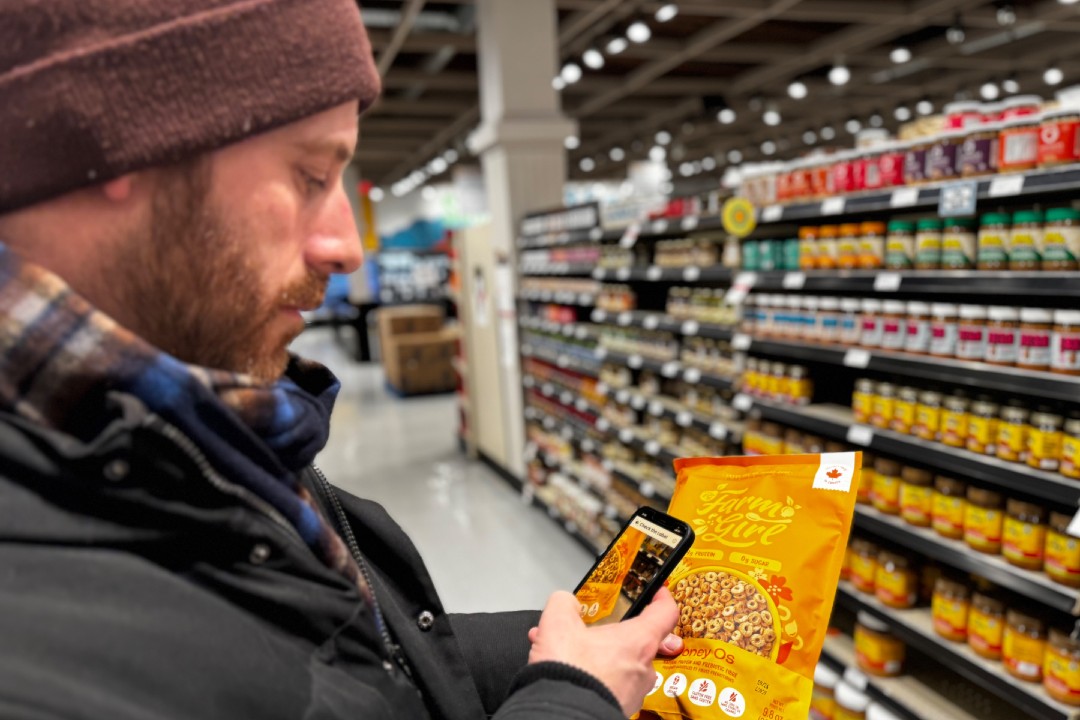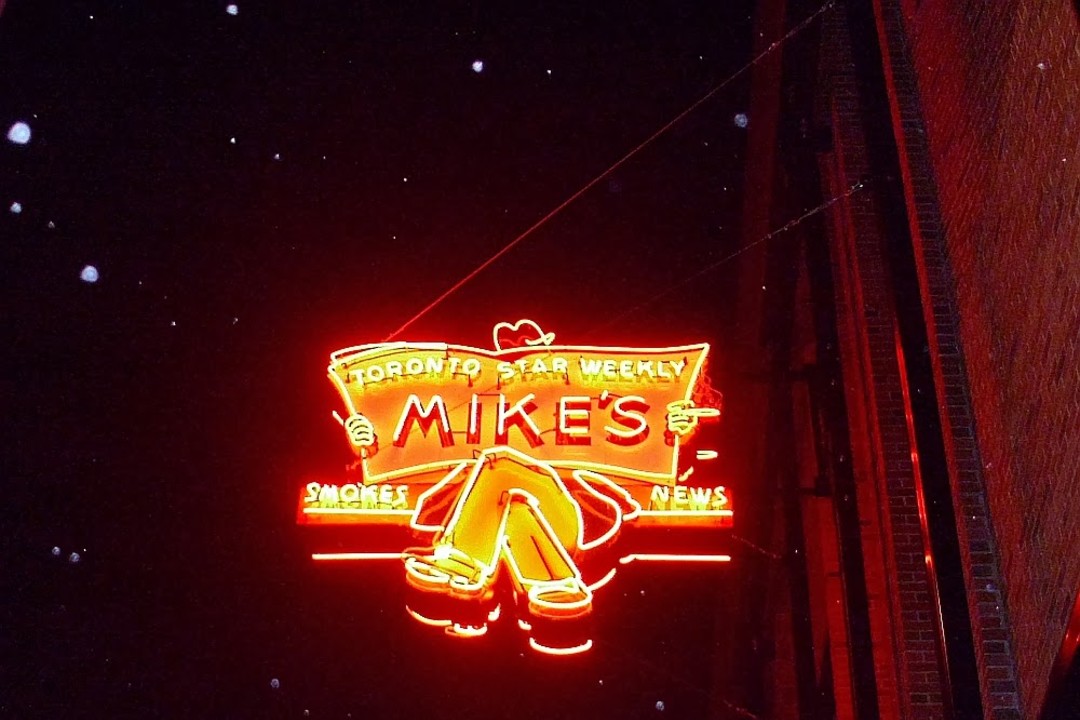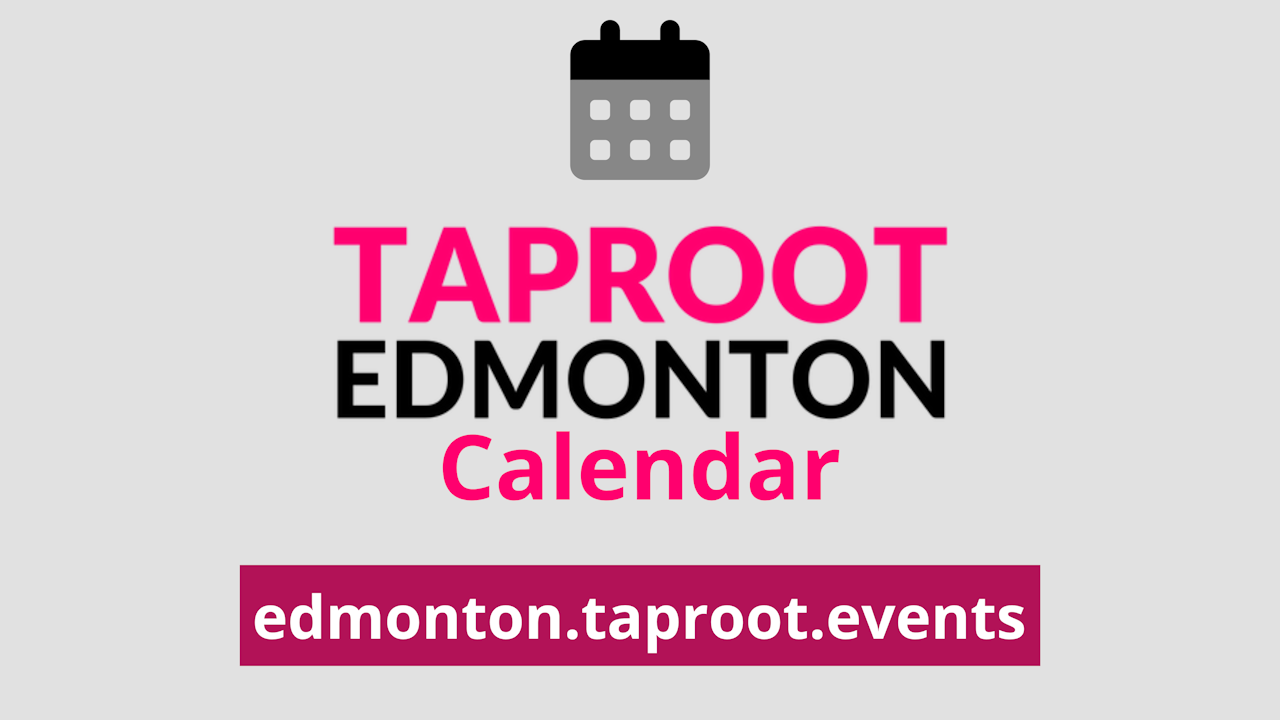
Check the Label app could 'push our politicians' as tariff threat grows, Punchcard says
Sam Jenkins, the managing partner of Punchcard Systems, says his company's new Check the Label app can help consumers get something they seek — products made in Canada that can buffer the economic effect of American tariffs.
"We can't control what's going to happen for the next 30 days or for the next four years," Jenkins told Taproot. "When I think about what is most important, one of the things that's coming out of (the threat of tariffs) is that Canadians really do want to buy Canadian on a bunch of different fronts. One, to be able to support our economy. There's also a buy local component in terms of resiliency, and certainly around things like climate change."
When Estyn Edwards, Punchcard's partner and chief technology officer, brought Jenkins the idea (via his life partner) to give consumers more information about where products come from, the two mobilized their team. The company launched Check the Label on Feb. 10 after just two days of development. The tool is free to use in a browser and in apps for iOS and for Android. It enables users to scan a barcode, learn product info, and add insights to a growing database. It also harnesses several third-party artificial intelligence application programming interfaces to add data and display findings next to user votes on a product's country of origin.
On Feb. 13, Taproot tried the tool by scanning a box of Kraft Dinner and it didn't yield any AI-supplied details. "We're hitting our limit for how many AI queries we could have at once," Edwards told Taproot about the lack of results. He also said Check the Label experienced a 7,000% usage spike compared to three days prior.
The demand may make it sound like Check the Label has the potential to be a cash cow but that's not Punchcard's goal at the moment.
"There's probably a different answer today (to if we will commercialize Check the Label) than it will be tomorrow and next week and next month," Jenkins said. "We're an organization that has clients, and we try to drive profit just like any other business, but it's really empowering for our team to get to work on something that creates value that is non-commercial. I don't think we're going to commercialize the data."
Jenkins said he doesn't see the growing buy-Canadian trend as anti-American. Ultimately, he said, the onus for equitable international trade doesn't fall at the feet of buyers and sellers.
"We're not responsible as individuals in this ecosystem, in terms of the decisions that our governments are making, in terms of their economic negotiation," he said. "As an organization, while we're Canadian based, we do quite a bit of work in the U.S. as well. From our perspective, the best situation is the really safe and economically viable U.S.-Canadian border."
Fittingly, another inspiration for Check the Label is to bring greater clarity to what a "Canadian" product is within the official designations like Made in Canada, Product of Canada, Assembled in Canada, and Imported by Canada, which all have different meanings. Jenkins said the project also allows employees to enhance their skills and live their values. The Punchcard team also did socially minded work in 2020 with the COVID Continuity tool it built with The CommAlert Group and the Canada Emergency Wage Subsidy Estimator it made with Video Tax News.
Edwards said Check the Label may have a larger spinoff benefit by demonstrating what Canadians want from their political leaders in this moment. Check the Label might help "push our politicians to have a little bit more say, and maybe hurt the people that are forcing these tariffs," he said.






